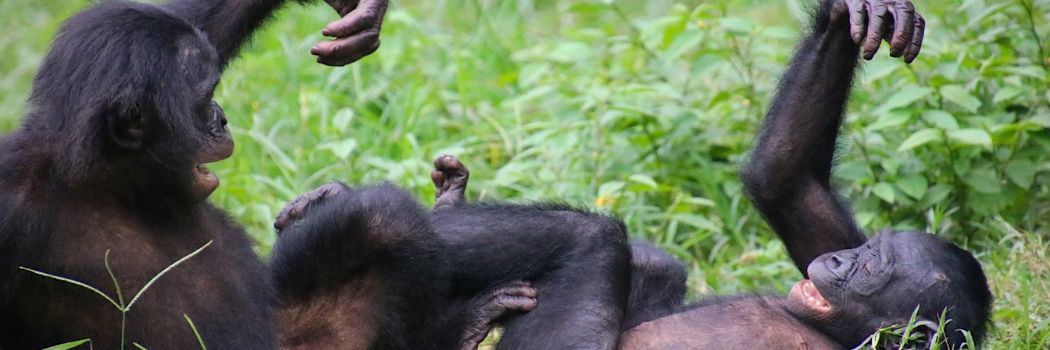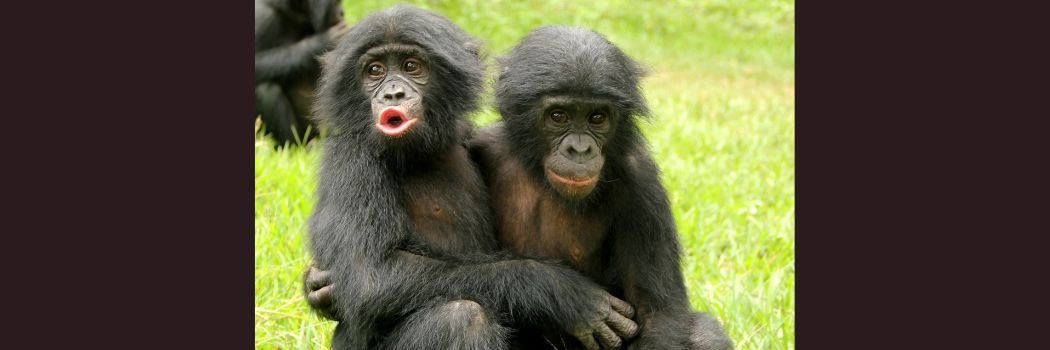.jpg)
Bonobo apes orphaned by the illegal trade in bushmeat and pets can overcome trauma and develop social abilities like those of their mother-reared peers.
That's the finding of a new study led by our Department of Psychology into one of our closest living relatives.
Negative effect on social abilities
The early life trauma of losing their mothers and the deprivation caused by human capture can have long lasting negative effects on bonobos' social abilities.
Our research looked at the effects of rehabilitation carried out at Lola ya Bonobo - the world's only bonobo sanctuary - in the Democratic Republic of Congo.
The researchers were interested in the social and emotional development of orphaned bonobos. Bonobos are in danger of extinction due to human activities and rehabilitation efforts are important in helping to conserve their numbers.
Over a 10-year period the researchers compared the orphans' development to those raised by their mothers, at different points in time across the animals' lifespans.
In particular, the researchers investigated how the bonobos' empathy, social skills and aggression behaviours developed over time and between different sexes.
Ability to overcome challenges
Although orphaned bonobos showed reduced social skills, they still demonstrated a degree of the species-typical social behaviours seen in the mother-reared apes. This included social skills and empathy.
The researchers say this underscores orphans' ability to overcome challenges.
And they say it highlights the important role that rehabilitation centres can play in the apes' recovery before they are released back into the wild.
The Lola ya Bonobo sanctuary does vital work in protecting this vulnerable species. While the orphans' social development is not equivalent to that of their mother-reared counterparts, they overlap in the development and behaviours they display. By better understanding the healthy social development of bonobos, we aim to help the important rehabilitation and conservation efforts of this unique species.

Social play behaviour between an orphaned and a mother-reared juvenile bonobo. Credit Stephanie Kordon/Lola ya Bonobo Sanctuary.

A young bonobo offers comforting contact to another after a conflict. Credit: Zanna Clay/Lola ya Bonobo Sanctuary.

A young bonobo carries another on her back, offering comfort and reassurance. Credit Stephanie Kordon/Lola ya Bonobo Sanctuary.






